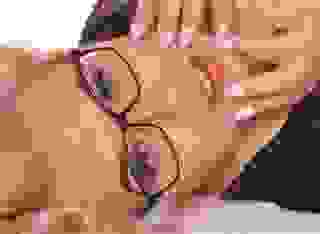Note: You can change font size, font face, and turn on dark mode by clicking the "A" icon tab in the Story Info Box.
You can temporarily switch back to a Classic Literotica® experience during our ongoing public Beta testing. Please consider leaving feedback on issues you experience or suggest improvements.
Click hereI don't know exactly what happened to her, or what soured her on life. Whatever it was, I still found it hard to believe that she had ever been happy, or kind. My mother was like vinegar.
She fought with her husband - about everything and anything. You would think that they could have found common cause in how much they disliked me. But even if they agreed that I was a miscreant who should be chastised, they would quarrel over the punishment.
Mother received me in the Duke's hall, sitting in Father's chair.
- "Where were you?" she demanded.
- "Hello, Mother." I replied.
- "Where were you?" she repeated - only louder.
- "Down by the river."
- "Daydreaming. Lollygagging about, I'll wager. You manage to waste more time in idle pursuits than anyone I've ever met - or even heard of!"
- "Surely you summoned me for some other reason, Mother."
Yes, I was deliberately trying to anger her. It was like pouring oil on a fire. I knew it. But the alternative was to listen for ages while she picked at each and every aspect of my life which she didn't approve of. That included pretty much every aspect of my life.
Pick, pick, pick. She could go on forever, like the sea wearing down a rock, whereas if I angered her, she would fly into a rage, and say some truly hurtful things - but the assault would be of shorter duration.
- "You disrespectful little bastard." she hissed. "You're no child of mine. The faeries must've come and substituted a changeling for my baby."
She was trying to hurt me, but she was also repeating herself. She'd said such things to me before now.
- "Do you have any idea how much trouble you've stirred up?" she shouted. "Your father's scholars may be idiots, but they're his guests! Now you've gone and tarnished the good name of our court. Who's going to come to Elmina, if they're just going to be assaulted by the likes of you!"
- "Lower your voice, please." said my father, as he entered the hall with Tir Storum and a pair of guards. He had them shut the double doors, and remain there, while he slowly approached us. "You are shouting so loud, I'm sure that they can hear you in Whydah. Was that your intent?"
Mother's eyes narrowed, and I could see her preparing a waspish retort.
It was something I'd tried to explain to Glasha. She slept in a barracks; I lived in the Ducal Palace (or family compound, which was a more accurate description). She washed at a well in the yard, while I had basins of water provided, and servants, and all of the comforts anyone could ask.
Yet I wanted her to understand as much of my family life as I could communicate.
- "They're like flint and steel, Glasha." I said. "Though they seem to take turns striking sparks from the other. No - that's wrong. They're stone and stone. Constantly hammering away at us - and each other."
Glasha listened to all of my confessions, and all of my complaints.
"I'm sorry. I keep pouring all of this onto you."
- "You're getting it off your chest." she said.
- "It's more than that. I... I don't ever want to be like them. I know that I can be irritating, and stubborn, and..."
Glasha put her arm around my shoulders.
- "You aren't flint, or steel, Tauma. Nor are you stone. Whatever you are, I think you suit me very well."
Back in the Duke's hall, my mother had transferred her anger from me to her husband.
- "I am disciplining my son." she snapped.
- "The one you just described as a changeling? No harm done - I'm sure that only half of Elmina heard you." said my father.
- "He's created a scandal!"
- "Which I will deal with."
- "Without consulting me, as usual!"
- "Because I don't want everyone for miles around to know our business." said Father. His expression rarely changed, but when he spoke just a little louder - as he did now - we knew that he was becoming agitated.
- "I wouldn't have to make a scene if you included me in your councils. You'd rather take advice from sycophants and bootlickers!"
- "You go too far."
- "Or not far enough!" she shouted.
At that moment, my father remembered that I was there. He looked my way.
- "Go to your chamber." he said. "I will call you later."
- "I'm not done with him!" shouted my mother.
He didn't even look at her. "Go." said Father.
***
There were several more repercussions from my fight with the offensive scholar.
My father called on me two days later.
- "This would be a good time for you to see more of Varna." he said. "You will leave the day after tomorrow."
It wasn't exactly a punishment. In fact, it was more of a family tradition. My brother Aludar believed that travel broadened one's education. He went downriver, to Whydah, where he spent several months among Mother's kinsmen.
From there, he sailed to Galtin's Port. He also visited Portoa, before returning home. He was gone almost a year, in all. I know that he learned a great deal, and that it was good preparation against the day when he would become Duke of Varna.
Merik was sent travelling, as well. He lasted a total of two months. A week in Whydah was more than he could stand.
Nathal not only replicated Aludar's travels - he exceeded them. He went to every corner of the Duchy, and spent almost two months in Galtin's Port. It was fully 18 months before he returned to Elmina.
Now it was to be my turn. This wasn't much of a punishment, because I would have made such a journey in any event. It was simply convenient for my father to send me away now. He could explain it as he chose, depending on who he was speaking to.
Meanwhile, he also decided to pack up all of his wife's belongings, and to ship them to Whydah. Then he packed up his wife, and shipped her to Whydah as well.
***
I had only a day and a half to say goodbye to Glasha.
- "This is all my fault." she said.
- "No. This voyage would have happened sooner or later in any case. It's merely convenient for my father to send me away now. And you should never regret speaking up for the truth as you did. It showed courage."
- "I have many regrets." she said.
- "My only regret is that I can't take you with me." It wasn't really an option, though. There would be little to no privacy, since I wouldn't be travelling alone. And neither Glasha nor I was sure that privacy would be a good thing for us, at this stage.
We hadn't resolved the question of our future relationship - and until we did, it would have been unwise to embark on a physical relationship (even if we were both curious). We were too young for such a step. Both of us were wise enough to see that.
- "I'm going to miss you." she said.
- "I'll miss you, too." I said. "I'll be thinking of you every day."
She smiled at that. "There will be a thousand things to see and do, and people to meet - including young women. I'm sure you'll be far too busy."
- "You know me better than that, Glasha."
That was all I had to say. She did indeed know me better than that. But in this time apart, we were both going to have the opportunity to learn about ourselves.
***
There was no question of the Duke's son travelling alone. I would have a small escort, and I was also entitled to a bodyguard. I chose my own: I asked Durgat if he would accompany me. The huge half-orc already approved of me for thrashing the scholar - and he would be worth five men in a fight. In fact, he was so intimidating that we would likely never have to fight at all.
- "As your bodyguard." he said, thinking it over.
- "Yes.
- "Will we go east at all? To the Blasted Tree?"
- "Yes."
- "Then I agree."
Luck was with me, because two other young men were also interested in doing the Grand Tour at this time. One of them I already knew: Hurmas was four years older, tall and handsome. He was the son and heir of a Gerdar.
The second was Sezima, a fellow that I was meeting for the first time. Only two years older than me, he was already Gerdar in his own right. Both he and his family thought it best that he gain some 'seasoning' by travelling the Duchy before taking up his duties on a full-time basis.
If you are not Varnan, or familiar with Varna (which I imagine is quite rare), I should probably enlighten you about the titles we still use. Both 'Tir' and 'Gerdar' are holdovers from the days when Varna was a Kingdom, but we continue to employ these designations.
The Tir are major landholders, so it only made sense for the monarch to appoint these men (or, in exceptional cases, women) as wardens in the areas where they were the most powerful persons. A small number of royal office-holders or counsellors were also granted the title of Tir. At that time, there were nine Tir in Varna, including Tir Storum, the Commander of the Duke's Guard, and my uncle, Tir Esin, in Whydah.
The Gerdar were more in the nature of judges, empowered to resolve disputes. Some were royal appointees, sent to troublesome districts, but over time, more of them were locally elected. The Gerdar were also responsible for pursuing fugitive wrongdoers, and for organizing local defence when necessary. There were some 15 Gerdar in the Duchy; I would be travelling with one, and with the successor to another.
Hurmas and Sezima each brought three guards; I had only three myself - but one of those was Durgat.
- "Ye Gods." said Sezima, when he first met Durgat. "We certainly won't lack for shade."
He had a quick wit, and a wicked sense of humour. Sezima also had a trick of raising one eyebrow while keeping the other steady. I didn't take to him, at first: he seemed irreverent and cynical, unable to take anything seriously.
- "Give him a chance." said Hurmas, who knew him better.
Hurmas himself was quieter, prone to mulling a matter over thoroughly before venturing an opinion. He and my brother Aludar had a great deal in common. In fact, they knew each other, and sometimes discussed books. They shared a certain laborious integrity, a slow-moving intensity. I had considerable respect for Hurmas before we even left Elmina, and that respect only grew.
He was entirely right about Sezima. It took only a week or so before I realized that the young Gerdar wasn't cynical at all; his irreverence was only a defence mechanism. Underneath, Sezima was entirely earnest, an idealist obsessed with justice and fairness. We discovered that we shared quite a few opinions.
Our voyage began with a passage downriver to Whydah. We walked out of the Palace compound through the Water Gate, next to the bastion built by the first Duke, Arivan Cunedda. He had sited two of his bigger cannons there (and two more on the opposite bank), so that he could control river traffic.
The river Varna was, as it has always been, the central artery of communication and trade for the entire Duchy. More than half of our people lived within sight of it, and many depended on it for their livelihoods.
A strong wind from the south could speed our passage, but the current alone was powerful enough to carry us to Whydah in a matter of days. Travel upriver was more time-consuming, if the winds were unfavourable. Then the boatmen would have to strain at the sweeps, or even hire teams of oxen to draw their vessels against the current.
From Whydah to Elmina, a relay of horses might be faster than a riverboat; from the capital to Whydah, there was no contest. The river was that powerful. It was so wide that there were no bridges before Elmina. If you wanted to cross the Varna, it had to be by boat.
This was a journey we had all made before, as children - except for Durgat and two of the guards. I had strong memories of the dominant colours: blue, green, and grey. There was the blue of the river (except where the current stirred up the silt, so that it appeared more brown), the green of the trees, and the grey of the rocks.
To either side of the mighty river, there was cultivated land: fields of wheat, in the main, or rye and barley. It was not especially fertile soil. The farmers had many traditional sayings: their ancestors had had to move ten thousand stones, in order to uncover enough ground to plant crops. The cattle had round heads, people said, from moving aside the rocks in order to get at the grass. The evidence was there to be seen, in endless stone walls separating the fields, or enclosing small herds of livestock. The houses were often of stone, too, with slate roofs.
In other districts, it was thousands of trees that had been felled before they could grow enough grain to support themselves. Here the walls between properties were still usually of stone, but the houses were larger, and more frequently built of wood.
There were also large stretches of pastureland, for the raising of cattle and sheep. Varna had few vineyards, except for the small green grapes that produced Anshan wine. Orchards did better, south of Elmina, where apples, pears and plums were grown.
The river dominated. But it was hard not to notice the forests, the small hills and ridges, the rocky outcrops which provided the splashes of grey against an overwhelmingly green background, as if the ribs of the land had been exposed in places.
The river ruled all, men said. But there were vast areas of barely-penetrated forest. Trees, as far as the eye could see, an immense sea of green - home to men, in some places, but far more the sanctuaries of wild beasts, of small bands of wood-elves... and the fey.
The Kings of Varna had claimed to reign over a land bordered on three sides by the sea. The truth of it was that more than half of the territory they pretended to rule was trackless forest, where the writ of the river-dwellers did not hold any weight.
To my surprise, Hurmas' thoughts were running in the same direction.
- "How much of it is there, I wonder?" he said.
- "How much land?" asked Sezima.
- "No - the forest. It just goes on, and on. Have you ever sailed to Portoa? I did, as a boy. Well... you'll see, soon enough."
- "It's daunting. And humbling, at the same time." I said.
- "That's it." said Hurmas.
The first part of our journey was very swift. Within a few days, we reached Whydah, the main seaport for the Duchy. It was a bustling place, home to several thousand souls - some said as many as 5 or 6,000.
I had been here several times. It was Varna's second-largest town, and the home of my mother's side of the family. I hadn't been impressed as a child - and I wasn't now.
Elmina was no great capital. The royal palace and many other fine buildings had been destroyed many times, over decades of civil war and petty struggles over the succession. The Cunedda Dukes had rebuilt large stretches of the town, but never lavishly. They repaired, but did not restore or improve. The Ducal residence was large, but purely functional. There were only two temples which were at all eye-catching (if you were in a charitable mood).
I don't mean to suggest that Elmina was shabby, or shoddy. It was simply... uninspiring. When a building could continue to serve its purpose (or a new function), it was allowed to slowly decay. The lower barracks were a case in point.
These were the accommodations for the Duke's half-orc and half-elven mercenary contingents. Their quarters were rudimentary, at best. I found them signally depressing.
- "That's because they used to be slave pens." Glasha told me.
- "What?"
- "Converted slave pens, if you prefer."
She was right. My brother Aludar's research confirmed it. The Kings of Varna held slaves there; my family, 200 years later, still used them to house their mercenaries.
Elmina was nothing to be proud of. But Whydah was singularly unprepossessing.
First off, it stank of fish. Or of fish guts, to be more precise. That was in addition to the normal stench of human habitation, the reek of the tanneries, of offal, and dozens of other contributing effluences.
There were hundreds, if not thousands, of seagulls, with their unpleasant cries. 'Rats of the sea', my father called them. I saw no reason to disagree with him.
But as we arrived in Whydah, I wished that my father's conservative cronies were with us. I would have delighted to ask them about the 'Age of Glory'.
Whydah's docks and harbour facilities were originally built to service slave ships. Many of the warehouses close by were first used as holding pens for slaves, before they were auctioned off. The Fish market, at the foot of the hill, had always been called that; The High Market, though, had once been called the 'Slave Market'.
There had probably always been some kind of rivalry between Whydah and Elmina. The sea-merchants and slave traders were set apart from the upriver farmers and herders by their economic interests as well as their 'cultural' outlook.
The people of Whydah traded with Portoa and Galtin's Port, and considered themselves more cosmopolitan, more worldly in outlook. The Elminans were more conservative, more wary of 'dangerous' outside influences. The two towns spent centuries backing rival claimants to the throne - to the point where, if a contender arose in Elmina, Whydah would almost automatically support his opponent.
It still amazes me that my father married my mother.
She was from Whydah - from the most prominent family there. The Esins were wealthy, powerful, and connected to every other important family within 100 leagues. Hurmas and Sezima accompanied me to call upon my mother and my uncle. We could hardly do otherwise. I brought Durgat with us, if only to annoy her.
I succeeded.
Mother had to receive us, if only to avoid creating fodder for the local gossips. But that didn't mean that she had to be polite. Durgat was quickly sent off to eat with the servants (where I'm sure he caused quite a stir). Once I'd introduced Hurmas and Sezima, Mother asked them about their families - all the while pointedly ignoring me.
My uncle, Tir Esin, was more hospitable. He enquired about the news from Elmina, and asked about my father's health. He was something of an oddity among the great nobles of the Duchy. He was soft-spoken, even shy, and still wore a mourning ribbon for his wife - even though she'd been dead for almost six years. Esin was also notorious for mending and patching his old clothes; some said this was because he was cheap, while others claimed that it showed his basic humility.
He was obviously uncomfortable with my mother's barely-concealed hostility towards me. After a short conversation, he released us into the care of my cousins, Viken and Bathene. Viken was an ass, interested mostly in telling us about his many accomplishments; Bathene was a reasonably sweet girl who had the good sense to be embarrassed by her brother.
Bathene had bright red hair and light green eyes - a striking combination. She wasn't especially attractive, but she would probably be receiving quite a few offers of marriage in the near future. An alliance with the powerful Esins was sure to be highly sought-after.
Three days was long enough to see all of Whydah. We spent a fair bit of our time on the docks, discovering where the ships were going next, and what cargos they were carrying. The captains were a colourful lot, who wore unusual clothing and cultivated eccentricities in order to enhance their reputations.
One old greybeard sported enormous mustaches, a tattered wide-brimmed hat, and rings on every finger. He looked like a caricature of a smuggler. Another captain, a female, carried a sword, two daggers, and a belt across her chest with at least four throwing knives.
- "Smuggler? Or pirate?" asked Sezima.
- "Or both?"
- "Oh! There's Urbo."
- "That's Urbo?" I was surprised. The man Sezima had indicated wore a weather-beaten old coat that had probably never been very fine to begin with. He had long, shaggy hair, and a toothy smile. He didn't look at all like a captain - except for the attitudes of the people around him. They seemed to be attentive, even deferential.








